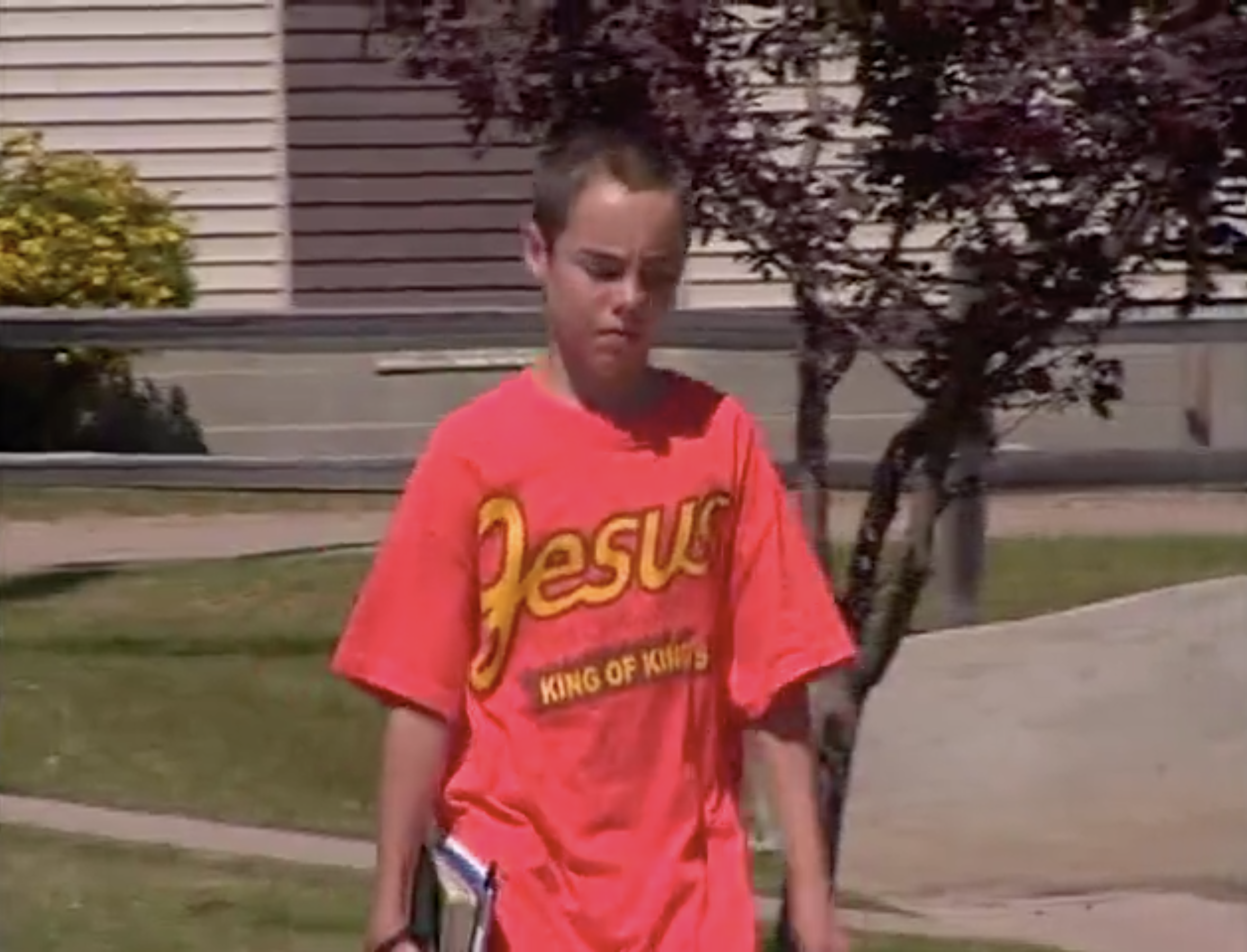If you’ve ever wondered what happens when you combine children, choreography, charismatic Christianity, and a PowerPoint presentation about eternal damnation, Jesus Camp has your answer. Spoiler: it’s a documentary, not a new Netflix horror series — though it sometimes feels like one.
Directed by Heidi Ewing and Rachel Grady, Jesus Camp is a holy dip into the evangelical youth revival movement of the early 2000s. It’s like School of Rock, but instead of rock music, the kids are learning how to preach against abortion, speak in tongues, and do spiritual warfare with flags. Yes, flags.
Film hums with an ambient gospel tension. The soundtrack subtly underscores the emotional intensity of scenes where children cry, pray, and earnestly repent for things like “not feeling God enough.” The eerie juxtaposition of innocence and intensity is captured with a score that says: “You might laugh, but also… should you?”
Aesthetically, the film has that early 2000s documentary rawness, which works perfectly. It doesn’t try to beautify or editorialize too much — it lets the content speak for itself, which turns out to be both hilarious and deeply unsettling. The editing is sharp, often cutting from impassioned sermons to wide-eyed kids who look like they were just trying to go to summer camp and ended up in a live-action Book of Revelation.
What makes Jesus Camp genuinely original is its choice to observe rather than judge. The theme isn’t “Religion = Bad” or “Kids = Creepy.” It’s “This is happening. Let’s all take a good, long, thoughtful (and maybe slightly horrified) look.” And boy, do we look. And then we blink. Repeatedly.
Educationally, it’s a masterclass in modern indoctrination. You’ll come away knowing what a “prophetic dance” is, how to shofar-blow your way into a spiritual awakening, and what it sounds like when a ten-year-old delivers a fiery sermon that could rival a televangelist’s best work. You may also feel the sudden urge to re-read the Constitution.
In the end, Jesus Camp is one of those documentaries that’s equally at home in a college sociology class and at a party where everyone’s trying to one-up each other with “weird but true” movie recommendations. It’s weird, it’s true, and somehow, it sticks with you like a glittery cross-shaped sticker on your subconscious.



Prime watch

Netflix watch


